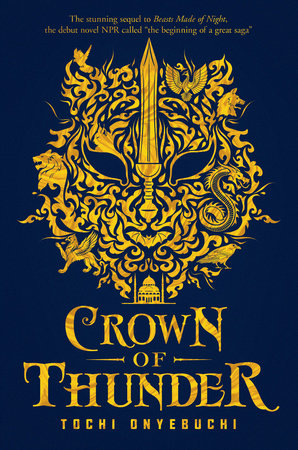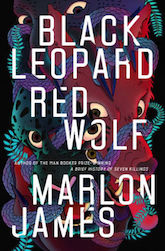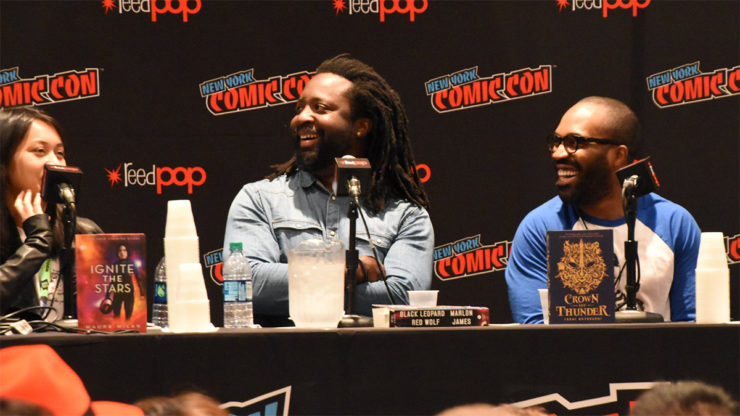Did you know that every time you don’t buy a book, your favorite character dies? According to Ali T. Kokmen, bookseller, man of fabulous bowties (his own words), and panel moderator, that is exactly what happens. But I doubt many of the attendee’s at the #OwnVoices Worlds: How Writers Build Authenticity Into Their Diverse Worlds panel needed to be encouraged to buy more books, or to seek out diversity in the fantasy and sci-fi that they love.
But what does it mean to write a diverse book? Why does one choose to explore diversity; is it for the author? For the reader? What does diversity bring to a fantasy or sci-fi world, and what is the burden of authenticity on the author?
There to answer some of these questions were Maura Milan (Ignite the Stars), Marlon James (John Crow’s Devil, The Book of Night Women), Tochi Onyebuchi (Beasts Made of Night, Crown of Thunder), Julie Kagawa (The Iron Fey series, Shadow of the Fox), and Sam J Miller (The Art of Starving, Blackfish City).
Buy the Book


Crown of Thunder
The authors had many different answers to the question of how diversity manifests itself in their works; Maura’s explanation was simply that she wanted to see “a short Asian girl as the main hero of a book.” So she wrote one, for herself and for those other girls had never seen themselves in the role of hero. “You’re on the cover now, so there you go.” Tochi pointed to genre fiction and anime in which he felt that characters were coded black, but weren’t actually shown as black. He wanted to see a story like that, with a character that was actually black, rather than coded black and shown as green, or something (“Looking at you, Piccolo”). Sam wanted to imagine a future where being gay or queer was more normalized in culture, where his characters could be gay or asexual or gender non-conforming and that wasn’t strange for the world.
Given these diverse reasons for writing their books, Ali asked how the authors picture their readers, if there was an ideal reader they imagined coming to their work. Marlon James had my favorite answer, explaining that by writing for himself first, he felt like he as writing for everyone, and that he was wary of intentionally writing for everyone else, because that can lead to making choices based on what he might feel he “should” do for that imagined audience, rather than what is right for the story.
Still, if he had to pick an ideal reader, it would be the kid who steals the books that aren’t meant for him. Marlon has fond memories of reading books that he wasn’t supposed to, like Shōgun, or books with sex in them. Sam J. Miller agreed with the danger of the “should,” mentioning that he had written other books before his debut (The Art of Starving) which didn’t get picked up, perhaps because he had been diluting his viewpoint by trying to write for “everyone” or “the straight white male default.” Tochi shared an anecdote about writing a math wiz character. Despite hating math and being terrible at it, he managed to create character that math kids loved, and some readers even believed that Tochi himself was one! That, to him, is the magic of story. Though there can be downfalls to that magic as well, as the next question led him to share that people often think that “sin eating” (a magic talent possessed by the main character in book) is a real cultural practice in Nigeria.
Ali asked the authors what was special about genre that affected their worldbuilding. For Tochi, the city of Lagos had an energy he had never seen written into a fictional world before, and that he wanted to bring to his work. Julie, on the other hand, was very focused on real-world authenticity, and she was very careful about her research and even has a contact in Japan who reads her work to make sure it is accurate and respectful to real Japanese culture. Sam talked about the freedom to explore questions about diversity and representation in a way that might be more palatable to those who would otherwise resist the ideas. In fantasy, for example, he can present ideas like a militarized police force that actively resists racial profiling where readers might be more receptive to the idea. Maura and Tochi both spoke about how interesting it is to imagine how questions about diversity might be different in the future, how the concept of diversity itself might evolve and change and how the struggles of minorities might be different than they are now.
Asked what it was like to see their book covers come to life, the authors absolutely lit up. Maura, having already spoken about her desire to see herself on the cover of a book, talked about how excited her publisher was to work with her, and how they cast Maura’s friend Jessica in the role of the character. Seeing her friend at the photo shoot, dressed in the armor Maura described was an incredible experience. Tochi and Marlon both mentioned that there are standard fonts and images that are usually used for “African books” and how pleased they were that their publishers didn’t try to take that tack with them, but instead listened to the authors’ vision and brought that to life. Julie agreed, talking of how pleased she was with the silver fox mask and the authentic Japanese architecture on her book. And Sam? Well, Sam’s book cover glows in the dark. He also gave out temporary tattoos his publicist had made that matched the tattoo Sam himself got in honor of the book coming out.
Buy the Book


Black Leopard, Red Wolf
Rolling into the audience questions, the panelists were asked how they balanced being unique with being diverse and authentic. Marlon answered that, in many ways, the worst part of appropriation is not the appropriation itself, but how it’s handled. He advised writers to do the work, take their lumps when they fail, and to go on to fail better. Sam added that working with other authors and sharing one’s work regularly is a great way to make one’s work better.
Another audience member asked if writing about fantasy or future worlds helped ease the pain of living in the present. Sam reiterated his comments about how fantasy worlds can allow dialogue that might not always been acceptable in less fictional settings, explaining that he writes for the oppressed to imagine a better world, but also to suggest that world to the oppressors. Marlon added that for him, he found writing his books very therapeutic because he was looking back, rediscovering the myth and stories of his own culture that he hadn’t been raised with, or known about, before he began doing research for his book.
In the end, it’s the job of genre fiction to imagine other worlds, worse worlds and better worlds, worlds that expand our minds, let us see ourselves in new ways and question our present ones. People who have rarely or never seen themselves can have stories in which they are the heroes, and people who are accustomed to seeing themselves can have their vision expanded to new and greater possibilities. Genre fiction at its best broadens our imaginations, teaches us about our past and drives us towards a better tomorrow.
Sylas K Barrett is a regular Tor.com contributor. Check out his weekly posts on Reading the Wheel of Time, and come visit him on Facebook and Twitter.










